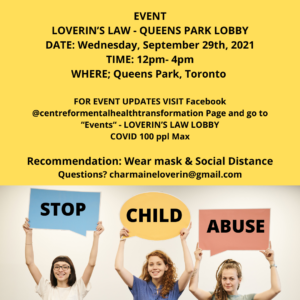Life as a Child of a Survivor
Written by: Kate Hucklebridge
Growing up with a parent who struggles with mental health conditions and trauma resulting from childhood abuse is a lifelong balancing act.
Until the age of 18, I had no understanding of the troubles burdening my father. Being the self-absorbed child/teenager I was, I convinced myself that we could not have a functioning and happy relationship. I cannot claim that I was a well-behaved child, if I did, when my parents read this, they will absolutely call me out. However, my father also acknowledges that his behaviour prior to starting his healing journey did not help my beliefs.
I recall asking why he was so hard on myself and my sibling when we were growing up. Rather than deny it, he told me that being perfect was the only way he knew how to be safe. With this admission, a lot about my childhood suddenly made sense.
Through my own learning, I understand that a key characteristic found in survivors of childhood sexual abuse, is a struggle with emotional expression. During my childhood, my father was an angry man, and it took minimal effort to trigger this emotional reaction. Because of this, I developed my own forms of emotional dysregulation and distrust of adults. I still struggle with this, as I find asking anyone for help to be a nearly impossible task unless they are my husband or my father. I believe there is a reason for this. Despite my father’s struggle with emotional regulation, he has always been reliable and predictable. If I succeeded in school or a social activity, I was praised and celebrated. If I was in trouble with school or my mother, I was yelled at and punished, usually by grounding or extra chores. Although my husband does not have that punitive power over me, he has a lot of the same characteristics and traits that my father shows only to those he trusts.
Genetically speaking, my father’s diagnosis of Post-Traumatic Stress Disorder (PTSD) and Depression, have made me particularly vulnerable to both. Studies have found that individuals diagnosed with PTSD in particular have lower cortisol levels, and this can be passed onto the individual’s biological offspring.
Cortisol is the body’s primary stress hormone. When a stressful situation or event passes, our cortisol levels should calm down. However, when this hormone isn’t turned off, we can develop a multitude of health problems, including, but not limited to, depression and anxiety, headaches, and memory and concentration problems. So, when a parent has lower cortisol levels and is diagnosed with PTSD or Depression, their child will be more likely to develop the condition as well, because we inherit the genetics and hormones from our parents. Knowing this will absolutely affect my decision to have biological children of my own. Though my father had no understanding of this risk or control over the transmission, I can make an educated decision about what is best for myself and the world we live in.
Ultimately, I would not trade my father for anyone or anything (16-year-old me would be in total disbelief).
The Gatehouse has provided an opportunity for both of us to heal and move forward into a healthy relationship. Without the staff and volunteers, there is no telling where my relationship with either of my parents would be. My work with this team of dedicated individuals has given me a unique glimpse into what my fathers life was like prior to starting his healing journey, and I will be forever grateful.


